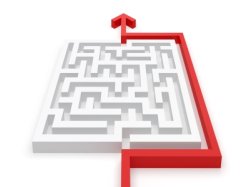Building Vocabulary and
Some Common Mistakes
Building vocabulary is the most basic thing in learning any new language. This is the foundation all your English knowledge rests upon!

Click Here for Step-by-Step Rules, Stories and Exercises to Practice All English Tenses
There are several ways for building vocabulary. Some are better and some are worse. Some are even harmful!
Here I will share with you some important
guidelines, and also some words of caution.
What is the Best Way to Learn Anything?
Well, you need to understand it, and use it. Here is an example: let's say you want to learn to drive a car. OK! You
start by understanding the car and the road regulations. Then you
practice, practice, practice. You do that until you KNOW. Until it is
easy. Then you take the test, and get your license.
Here is an example: let's say you want to learn to drive a car. OK! You
start by understanding the car and the road regulations. Then you
practice, practice, practice. You do that until you KNOW. Until it is
easy. Then you take the test, and get your license.
So it is actually a simple process: you understand the ideas and principles, and then you practice them in the "real world". That way it becomes part of you. So that's pretty obvious regarding cars. But what about other subjects?
 Let's say you want to be an interior designer. You start by
understanding the rules and how it all works: the theory. Then you must
practice using it. You can get an assignment to go to a place and use
that theory. You use the design data you got to actually design that
place. That way you will become better and better until you KNOW
interior design.
Let's say you want to be an interior designer. You start by
understanding the rules and how it all works: the theory. Then you must
practice using it. You can get an assignment to go to a place and use
that theory. You use the design data you got to actually design that
place. That way you will become better and better until you KNOW
interior design.
Now, what if you want to learn a new language?
What is the Best Way
for Building Vocabulary?
 You need to understand the words, and use them.
You need to understand the words, and use them.
You start by understanding the meaning of a word, and then you practice using it. In the end, you KNOW it. This is the way for building vocabulary.
Let's have a look at a real life example. You learn a new word. For
example, the word "a".
What does the word "a" mean? A dictionary is a good place to check this.
You will basically find out that the word "a" means you are referring to 1 thing, which is not specific.
OK! Now, let's use it! "a dog" would mean "1 dog, any dog". "a cat" would mean "1 cat, any cat". "I want a hat" would mean I want 1 hat, and I am not saying which one.
Now you can practice using the word by making up sentences. You can practice speaking it, reading it, writing it, drawing it, playing games with it, anything goes!
At the end you can be quite surprised when you see how well you know this word.
Do that with many words, and you will know many words!
Keep doing that and there is almost no limit of how far you can get! I said "almost" because at some point, you will discover that grammar is also quite important. I mean, words are important, but you need to know how to combine them correctly, too. "drinking the can" and "canning the drink" (preserving the drink in a can) mean entirely different things, don't they?
Common Mistakes in Building Vocabulary
 Here I will share with you some common mistakes in building vocabulary.
I will tell you the mistake, and then give an example from the driving
world, and the language learning world. That way you get a chance to
examine it from different sides.
Here I will share with you some common mistakes in building vocabulary.
I will tell you the mistake, and then give an example from the driving
world, and the language learning world. That way you get a chance to
examine it from different sides.
Building vocabulary mistake #1: learning in order to pass an exam, and
for that reason alone
Driving world: you take a lot of driving
lessons. You dedicate time and money. You learn all the special tricks.
You go to the test, you pass the test. You get your driver's license.
But if you can't really drive well, then… you just wasted a lot of time
and effort in order to get a piece of paper. Some people are quite
happy with that, and that is OK. You need to ask yourself: what do I
really want? Do I want to drive well, or do I want that piece of paper?
Language world: you take a lot of English lessons. You dedicate time and money. You learn special tricks. You go to the exam, you pass the exam. You get your nice score. Great. Do you remember any of it now? Can you use English in your work place? Can you use it when you travel? Can you easily read an English website and understand it?
Conclusion: exams and tests are there to verify your knowledge. They are not the end product. They can get you some nice pieces of paper, but you will not become a more skilled person because of your score. Find out what is your real purpose and always keep it in mind.
Building vocabulary mistake #2: memorizing data "like a parrot" with no
practice
Driving world: your driving instructor
tells you the exact way to perform parallel parking. You write that
down 10 times in your notebook. You say it 20 times back to the
instructor. You memorize it perfectly. Now, in the test, you can
obviously do it, can't you? Well, no, at least most of us can't.
Memorizing is never a substitute for drilling.
Language world: your teacher gives you a list of 20 new words. You write them again and again in your notebook. You really memorize them. But you don't actually use them. Now you are in New York, trying to have a conversation. How much benefit can you get from those words? Not much, I can tell you that.
Conclusion: information is all well and good, but it doesn't help you much unless you practice it and unless you can use it.
Building vocabulary mistake #3: starting to practice before you
understand it
Driving world:: your driving instructor
asks you to start driving. No explanations about which piece of
equipment does what, or which pedal to press. Just start driving. Good
luck. I guess some people might make it, but most will simply sit there
confused.
Language world: your teacher tells you that the new word you are going to study today is "chukubuku". You start singing songs about it, playing games with that word, and reading stories that have this word. You get no explanation about what this word means. Or, you do get an explanation, but you don't actually understand it. Big, big mistake. A very bad way to learn. (By the way, "chukubuku" is an invented word!)
Conclusion: understand the explanation before you start practicing. Practicing will definitely increase your understanding, but if you practice with no idea behind it, that won't really help you.
One last important tip.
Should I Understand Words from Context?
 Some teachers think it is best not to stop on every word, but to
understand the words from the context. That basically means, to guess
what the word means, or to simply ignore it.
Some teachers think it is best not to stop on every word, but to
understand the words from the context. That basically means, to guess
what the word means, or to simply ignore it. This is false help. It doesn't really help you in building vocabulary. It can leave you with many words you don't really understand, or that you only think you understand. This can, and does, mess students up.
Here is an example: a student reads the following sentence: "Marta has a parasol." Hmm… OK, what does that mean? You can guess all day long, but that won't necessarily get you to the right answer. You will probably remain unsure. But this can be easily solved. Simply check what it means! You can use the dictionary. "Parasol" is a kind of umbrella that protects against the sun. Ah, now it makes sense. "Marta has a parasol."
Another example: my English teacher taught us there were words you had to understand, and other words which were not so important. So we shouldn't waste our time on understanding the less important words. We should kind of guess them.
I was actually doing just that for a very long time. It made me think I knew words, when I knew them wrong.
For example, as a child, I ran into the word "respect". It was always mentioned in "serious" contexts. So I concluded it had to do with seriousness. In my mind, if it was said that someone respected someone else, it meant he looked seriously at that person. Boy, was that inaccurate!
Later on, when I "bothered" and opened a dictionary, I discovered I had completely invented that meaning. The true meaning was "to treat someone or something in a polite way because you consider them important". Do you see the difference from "seriousness"? I sure do!
So why is understanding words from context false help? Because it seems like it helps you to study faster, not stopping on every unknown word, but it actually creates damage.
In summary, the way to build vocabulary is to learn vocabulary - not to guess at it!

Related articles:
- How
to Study Vocabulary Words
- Activities
for Teaching Vocabulary: How Can You Teach (or Learn) New Words?
- Methods
for Learning English Vocabulary
- Teachers
Games for Vocabulary
- The
Best English Dictionary
- English Word Formation Processes
- Vocabulary
Websites (Word Lists)
- Building
Academic Vocabulary
- Building
Your Business English Vocabulary
- How
to Learn English
- How
to Learn English Fast
- How
to Learn
English the Right Way
- History of the English Language
Get Updates, Special Offers, and English Resources
Download your FREE GIFT (the first two chapters of
English Short Stories Book and Workbook)
as soon as you join!

By submitting your email, you consent to receiving updates and newsletters from us and to the sharing of your personal data with third parties for the purposes of sending you communications. We will not spam you. You can unsubscribe at any time. For more information, please see our privacy policy.





